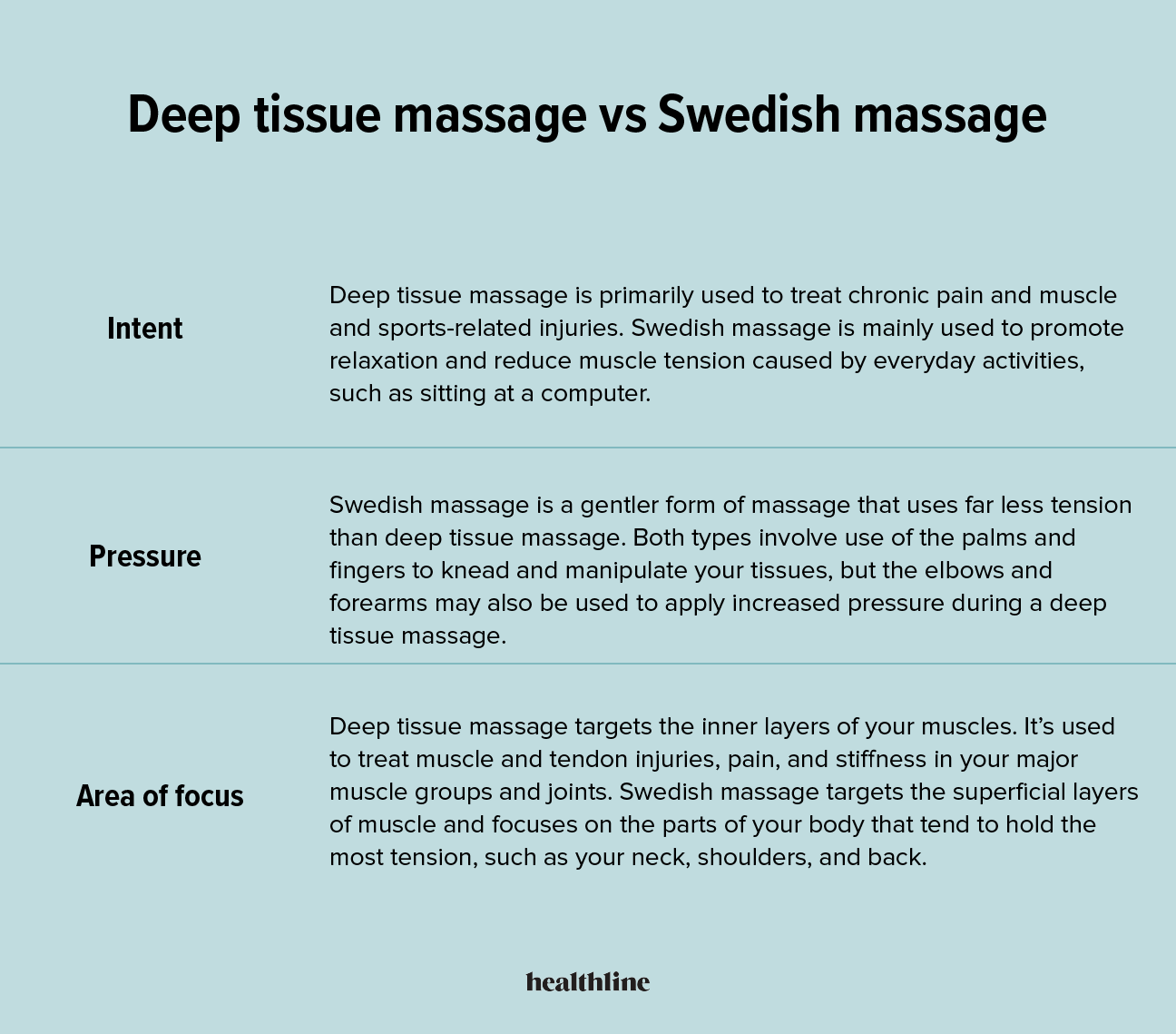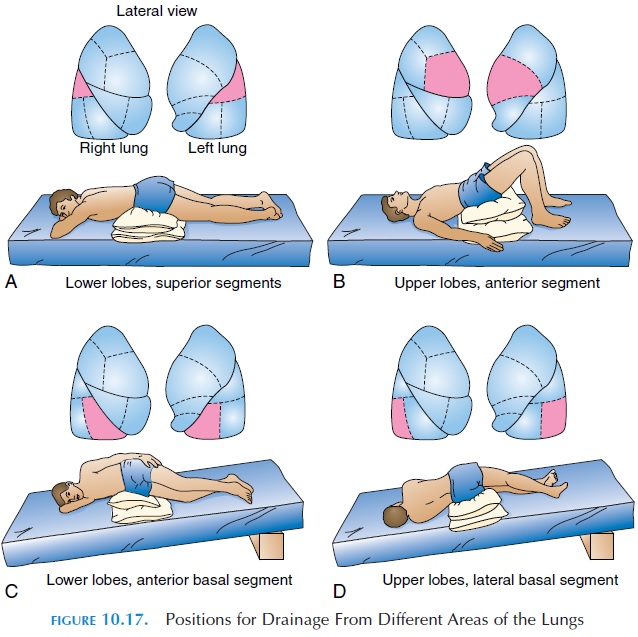Deep tissue massage can sometimes make things worse if not performed properly, leading to increased pain or injury. It’s essential to communicate your pain levels and preferences with your massage therapist before the session to ensure a safe and effective treatment.
Deep tissue massage, when done correctly, can provide substantial relief for chronic muscle tension and pain. By targeting the deeper layers of muscles and connective tissues, it can improve blood flow, reduce inflammation, and break down scar tissue. However, it’s crucial to seek the expertise of a qualified and experienced massage therapist to avoid any potential adverse effects.
Always prioritize open communication and trust between you and your therapist for a positive deep tissue massage experience.
Potential Risks Of Deep Tissue Massage
When considering deep tissue massage, it’s crucial to be aware of the potential risks it may pose. While deep tissue massage can be beneficial for relieving muscle tension and chronic pain, there are certain risks and concerns that individuals should take into account before receiving this type of massage therapy.
Lack Of Proper Communication
Insufficient communication between the client and the massage therapist is a fundamental risk associated with deep tissue massage. Lack of proper communication about the individual’s medical history, current health conditions, or specific areas of discomfort can lead to the application of excessive pressure or inappropriate techniques, potentially resulting in adverse effects.
Inexperience Of The Massage Therapist
The inexperience of the massage therapist can significantly increase the risk of negative outcomes during deep tissue massage. Without adequate knowledge and skill, the therapist may apply excessive force, leading to tissue damage, bruising, or soreness, rather than providing the intended therapeutic benefits.

Credit: www.healthline.com
Specific Health Conditions To Consider
When considering deep tissue massage, it’s crucial to take into account specific health conditions that may be affected by this therapeutic technique. Deep tissue massage can offer numerous benefits, but it’s important to be aware of certain health issues that may be aggravated by the intensity of this massage style.
Muscle Injuries
Individuals with muscle injuries should approach deep tissue massage with caution. While this type of massage can target deep layers of muscle tissue to alleviate tension, it may exacerbate existing injuries if not performed with care. Deep tissue massage should be tailored to the individual and adjusted to avoid putting additional strain on injured muscles.
Herniated Discs
For individuals with herniated discs, deep tissue massage may be contraindicated. The intense pressure and manipulation involved in deep tissue massage could potentially worsen herniated discs by causing further irritation to the affected area. It’s essential for those with this condition to seek advice from a healthcare professional before undergoing deep tissue massage, as it may not be suitable for their specific needs.
Arthritis
When it comes to arthritis, deep tissue massage can be beneficial for some individuals while potentially risky for others. While the deep pressure applied during this type of massage may provide relief for some arthritis sufferers, it can cause discomfort or aggravate inflammation in others. Careful consideration of the individual’s condition, alongside consultation with a healthcare provider, is necessary before opting for deep tissue massage.
Benefits Of Deep Tissue Massage

Deep tissue massage has several benefits that can improve your overall well-being and address various health issues. Let’s explore the advantages of this therapeutic technique in more detail.
Improving Chronic Pain
Deep tissue massage can relieve chronic pain by targeting deep layers of muscle and tissue.
Enhancing Blood Circulation
This type of massage helps in increasing blood flow, which promotes better circulation throughout the body.
Precautions To Take Before And After The Massage
Before and after getting a deep tissue massage, it is important to take certain precautions to avoid making things worse. These include discussing any medical conditions or concerns with the therapist, staying hydrated, and listening to your body for any discomfort.
Before you schedule a deep tissue massage to alleviate your muscle tension and pain, it is important to be aware of the precautions you need to take. Taking these precautions will help ensure that you have a safe and effective massage experience and minimize the risk of any adverse effects. In this section, we will discuss two important precautions to consider before and after a deep tissue massage: consultation with a healthcare provider and hydrating and resting adequately.
Consultation With A Healthcare Provider
Before undergoing a deep tissue massage, it is recommended to consult with a healthcare provider, especially if you have any specific health conditions or concerns. While deep tissue massage can be beneficial for most people, there are certain conditions where it may not be suitable or could potentially worsen the symptoms. By seeking guidance from a healthcare professional, they can assess your individual situation and provide personalized advice. If you have any of the following conditions, it is essential to consult with a healthcare provider before getting a deep tissue massage:
- Recent injuries or surgeries
- Open wounds or skin infections
- Blood clots or a history of clotting disorders
- Severe osteoporosis or fragile bones
- High blood pressure or cardiovascular problems
- Diabetes or other chronic conditions
During the consultation, be sure to inform your healthcare provider about any allergies, medications, or ongoing treatments you are currently undergoing. This will help them determine if deep tissue massage is suitable for you or if any modifications need to be made to ensure your safety.
Hydrating And Resting
In addition to seeking guidance from a healthcare provider, it is crucial to prepare your body for a deep tissue massage session. Hydrating yourself adequately before the massage helps to improve blood circulation and aids in the release of toxins from the muscles. It is recommended to drink plenty of water and avoid caffeine or alcohol before your appointment. After the massage, it is important to give your body time to rest and recover. Deep tissue massage can be intense and may leave you feeling sore or fatigued. To support your body’s healing process, make sure to:
- Drink plenty of water to flush out toxins released during the massage
- Take a warm bath or use a heating pad to soothe any muscle soreness
- Avoid strenuous activities or exercises for at least 24 hours
- Get adequate rest and allow your body to rejuvenate
Remember, every individual’s body reacts differently to deep tissue massage, so it is essential to listen to your body and take necessary precautions to ensure a positive outcome. By consulting with a healthcare provider and taking steps to hydrate and rest before and after your massage session, you can enhance the benefits while minimizing any potential risks or discomfort.

Credit: www.healthline.com
Frequently Asked Questions
Is It Normal To Feel Worse After A Deep Tissue Massage?
It is normal to feel worse after a deep tissue massage due to temporary soreness.
Can Deep Tissue Massage Cause Problems?
Yes, deep tissue massage can cause temporary soreness, bruising, and discomfort. It is important to communicate with your therapist about any pain or discomfort during the massage. If done improperly, it may also lead to injury, so it’s crucial to go to a licensed and experienced therapist.
Can Deep Tissue Massage Cause Inflammation?
Yes, deep tissue massage can cause inflammation as it applies pressure to muscles. However, it typically subsides within a few days. Drink water after the massage and apply ice to the affected area to alleviate any discomfort.
When Should You Avoid Deep Tissue Massage?
Avoid deep tissue massage if you have recent injuries, osteoporosis, or blood clotting disorders. Additionally, if you’re pregnant or have sensitive skin, it’s best to avoid deep tissue massage.
Conclusion
Deep tissue massages can temporarily worsen discomfort but lead to long-term benefits by releasing muscle tension, improving blood circulation, and aiding in faster recovery. It’s crucial to communicate openly with your therapist to ensure the massage suits your body’s needs.
Trust the process.



